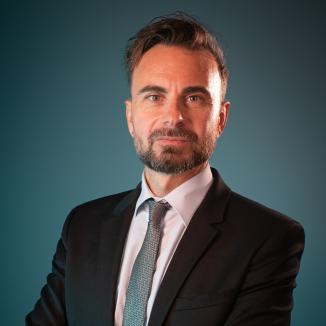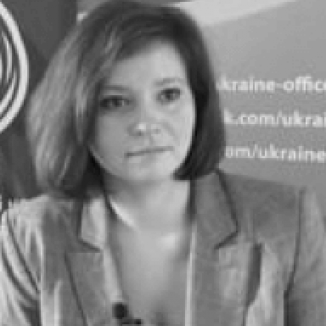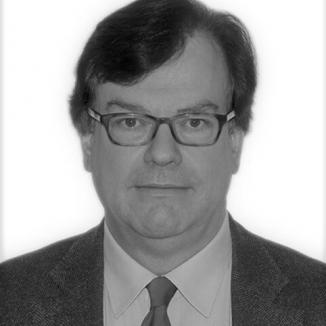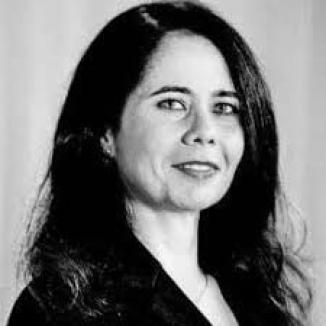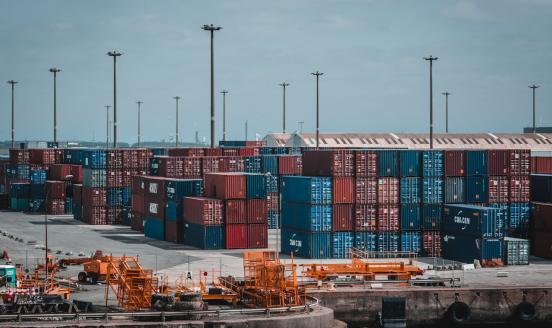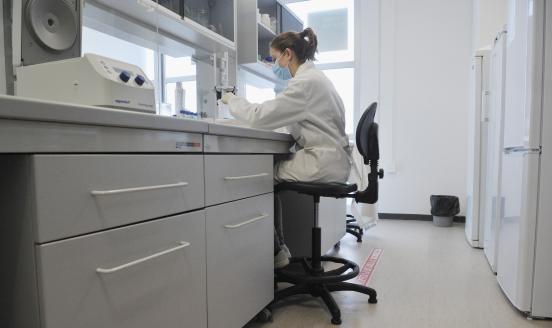The future of think tanks and policy advice
This event takes a look at the future of think tanks and policy advice. Current opportunities and threats will be discussed.
Speakers
Olena Carbou
Executive Director, Ukrainian Think Tanks Liaison Office in Brussels,
Anthony Teasdale
Director General, European Parliamentary Research Service,
Goret Pereira Paulo
Director, FGV Research Network,
This event is part of the "Why Think Tanks Matter" annual forum.
What is the added value of think tanks? What is the role of new competitors, such as law firms, advocacy groups, PR firms and non-traditional media sources, in transforming policy research and advisory? What is the impact of increased fragmentation, polarization of politics and changes in political parties and congress on the public discourse and policy advice?
These are a few of many questions that were answered and discussed on this year's Why Think Tanks Matter Forum. The focus was on the future of think tanks and policy advice, consequently many contemporary challenges and opportunities think tanks face were addressed.
Bruegel was proud to participate in the 2019 Global Go To Think Tank Report Launch that took place in over 100 countries around the world simultaneously.
Audio recording
summary
The chair of the event, Mr Giuseppe Porcaro, kicked off the discussion by asking the speakers to identify two or three key elements that come to mind which illustrate how the think tank industry has changed in the past ten years.
Olena Carbou: increased competition, responsibility and quality;
Anthony Teasdale: relevance, metrics, technological challenge;
Goret Pereira Paulo: data analysis for public policy development;
Giuseppe Porcaro: disruption in policy making, concerns of the change of the world.
In the continuation, Mr Porcaro moderated the conversation with a series of questions on think tanks, their relationship with governments, etc:
How have the increased fragmentation of politics and the changes in the political parties changed the discourse of policy advice?
Mr Teasdale said that the EP has always been fragmented and complex. They became accustomed to this environment faster than most of the national governments and assemblies. They adjusted to the polarisation more easily than in the MS capitals. The House of Commons, Bundestag, Capitol, etc., have had a harder time to adapt to the new political landscape. However, the war on truth makes the work of think tanks more difficult. At the same time, politics makes our work more interesting to a wider range of people. Politics is more central to people’s lives and, therefore, centres which provide new paths and shape policy have a bigger impact. The think tanks can hold politicians into account based on the truth without replacing those same politicians.
Ms Paulo offered the Brazilian perspective: in Brazil, the political scene is very polarised but it is hard to identify an ideology – people are polarised supporting an individual, not an idea. That is an opportunity for the think tanks, because if you work based on data, you build propositions that should bring benefits for the population, regardless of the politician backing it. To act independently and propose measures based on evidence is the key word.
Ms Carbou argued that Ukraine is a very particular case in the world of think tanks. Think tanks are pioneers inside the civil society of Ukraine, which is very active in promoting the European integration. EU integration is seen as a way of modernising the country. The years of 2015 and 2019 were the golden years for think tanks because they managed to push reforms. Some think tanks were so strong that they were replacing the authorities. The authorities were more open to the collaboration with think tanks between 2015 and 2019 because there was a general demand for knowledge which the authorities did not have inside.
How sustainable is that momentum?
The current authorities of Ukraine are enjoying a huge popular support in Ukraine and they do not think they need support from the civil society. The collaboration and the institutionalised dialogued is become increasingly rare and is shrinking.
Mr Teasdale then chimed in on the relationship of think tanks and governments: the US administrations’ relationships with think tanks seem to have been thoroughly different, in comparison to Europe. They are very sensitive to the think tank philosophy. On the other hand, in the UK or France it is much more difficult to establish that interface. In the EU, the problem is that once people get in, they stay there: there’s an elite group that constrains think tank impact in this city.
How do think tanks respond to policy demand?
Ms Paulo said that one of the ways think tanks act now is by trying to anticipate the demands of the public sector due to time constraints. When you start doing the research, you try to build your research question together with the policy-maker. Most of the time, the policy-maker helps the researcher formulate that question. Politicians and think tanks are equally held accountable because both need to show that what they are doing should bring benefits to society. That way, governments and think tanks are encouraged to work together. At the same time, think tanks are encouraged to maintain their independence. Think tanks should be associated with policy and propositions, not politicians. They should not be dependent only on one source of financial resources.
Ms Carbou said that the think tanks always knew that the future of Ukraine was Europe, whatever the change of government. When the authorities asked for research to be conducted on Europe, think tanks already had the knowledge because they knew what the country needed. The recommendations needed to take into consideration the limitations of the authorities. Also, any recommendation needed to be ready for implementation right away. The summary had to be understood by a very wide population. The goal is to sustain and support the future of the country.
In a world where politics is about conflict and simplification, how can the research of a think tank still be relevant? Is it affected by this new political landscape?
Ms Paulo argued that think tanks should stay focused and create propositions based on evidence and they should avoid the political conflict. They should work together with policy-makers with the goal of creating benefits for society: that is the mission of the organisations, to contribute to the socio-economic development of the country. If the traditional way is working based on evidence, then we should continue doing it.
Mr Teasdale identified the role of think tanks as the following: their job is to create a policy community. One of the social benefits of think tanks is to create a group of people that believe in and contribute to discussing policies and policy-making. They can also help build a sense of what the priorities should be in policy-making.
On the relationship between think tanks and academia, Ms Paulo said that there needs to exist independence both in the private and the public sector. By way of providing example, she said that the FGV has 50 research centres and they work in harmony, discuss papers; there is no tension between the academia and think tanks. Academia can contribute in the formulation and dissemination of the message, but they cannot change the conclusions, when they are evidence based. The papers can be written in a way that reaches both policy-makers and society.
On unanimity of think tanks regarding the future of the country, Ms Carbou offered the Ukranian example: based on their evidence, they think that the EU is the future of the country because it proposed a model of society which is better than what they had before or what any other neighbour could provide. However, in order to survive and maintain the position of think tanks in the society, they need to accelerate their input and their message.
The event was concluded with a final question on relevance of think tanks for policy advice in decades to come. Why will they still be relevant? Ms Paulo answered that they will be relevant due to continued evidence-based research. Mr Teasdale argued that there will be changes in both national and international public administrations; civil servants will be less paid, and they will move through jobs more. Consequently, the think tanks will be well placed to “pick up the slack” left by the changes in the public administrations. For Ms Carbou, the core ideal of “serving the country” is what will sustain the think tank work and impact into the future.
Notes by Tiago Almeida
